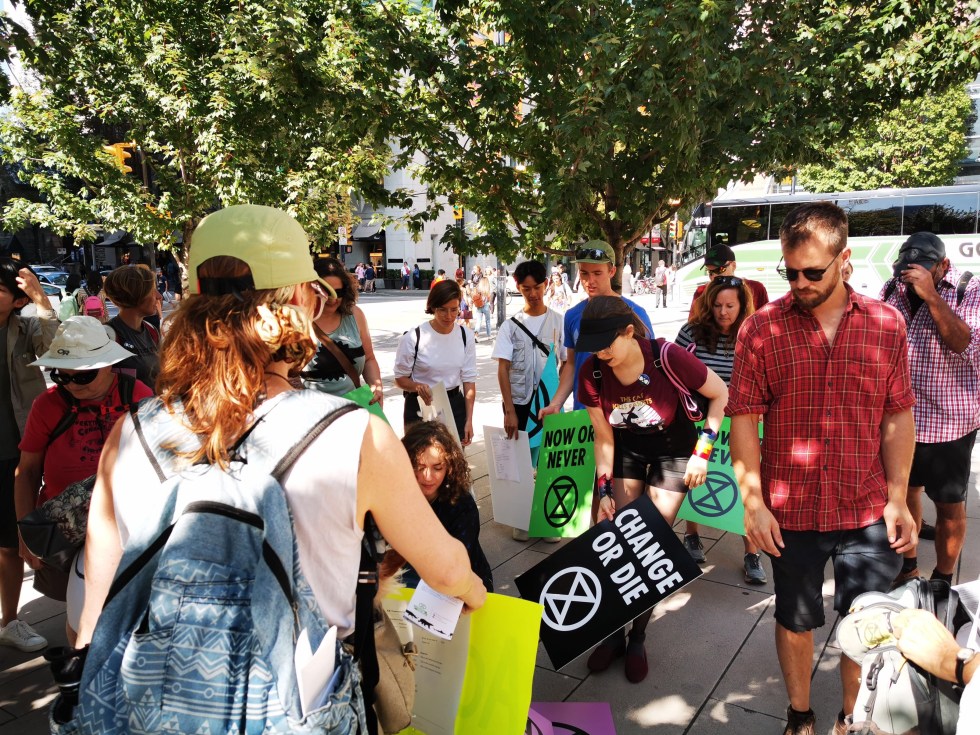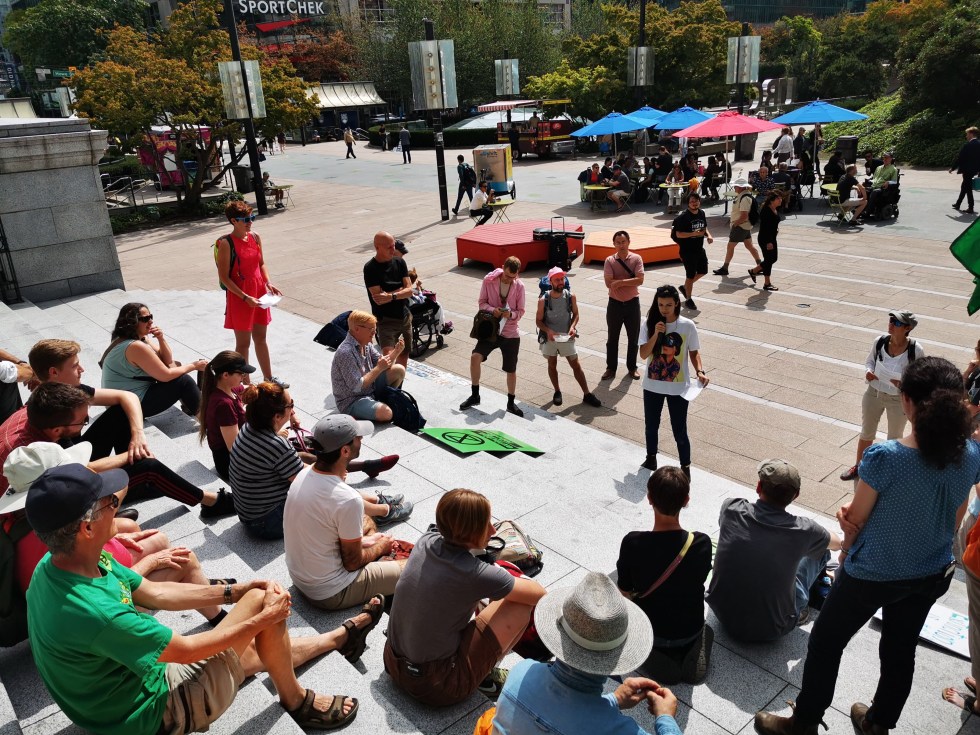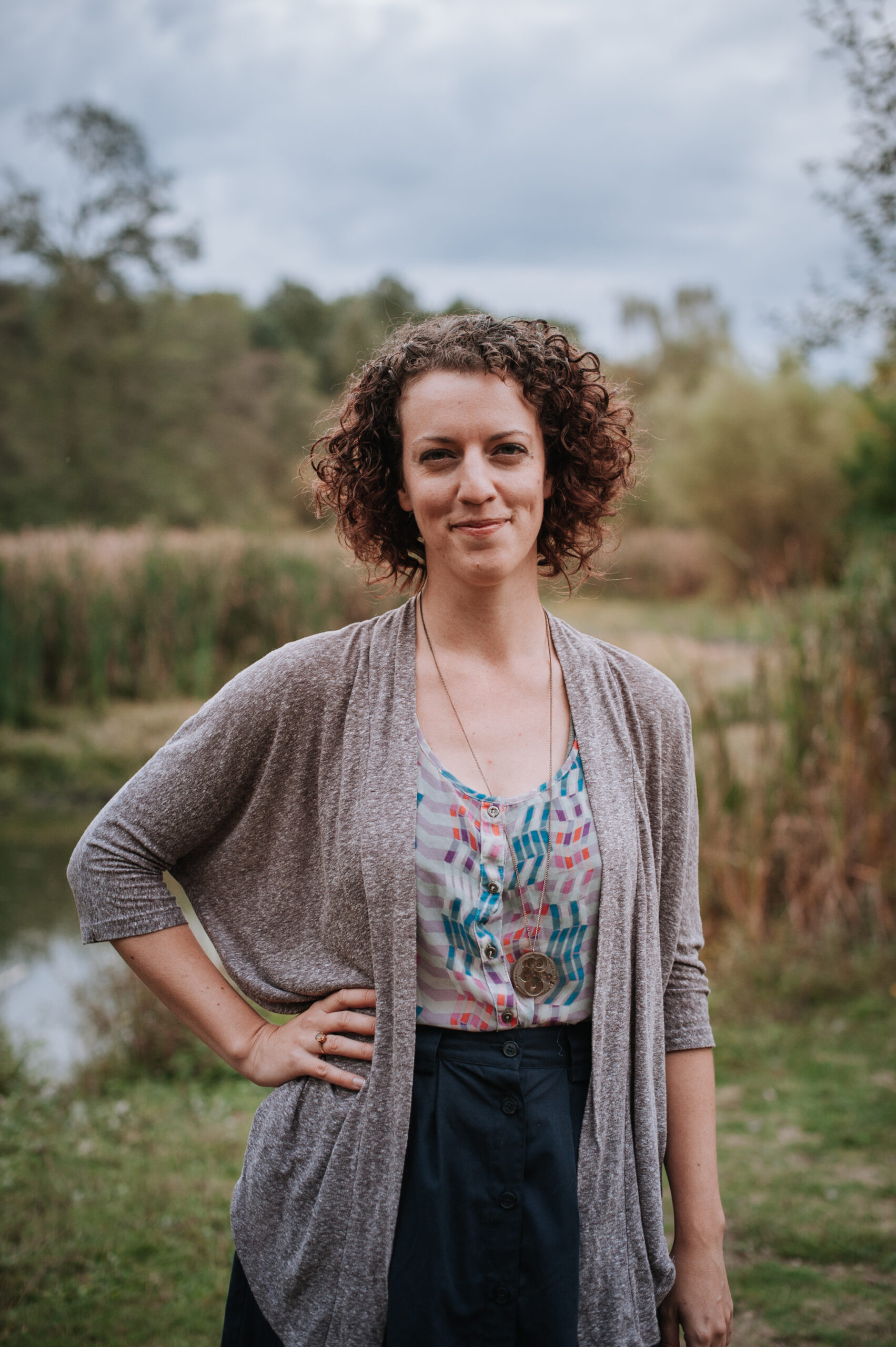Photos care of Extinction Rebellion, by Grace Gignon
Can you think about climate change and the resulting ecological and social collapse without being overcome with anxiety and guilt over the last plastic bag you touched? Are you paralyzed with indecision thinking about the possibility of having a child of your own and: a) contributing another human to this human-caused problem; as well as b) dooming them to live in a post-ecological apocalypse hellscape? Are you beginning to question whether you should travel by airplane ever again and considering buying a book on local foraging so that you can always feed yourself, even if the world falls apart?
Me too.
Sometimes, I wish that I could turn off everything I know about climate change and live in blissful ignorance for the next 20-50 years. But, in good conscience, that is not a real choice. And that’s why Extinction Rebellion exists.
Extinction Rebellion is an international, citizen-led movement using non-violent civil disobedience to fight the climate crisis. They began in the UK in October of 2018 by declaring a rebellion against the government and systems that are perpetuating the climate crisis and launching major acts of civil disobedience and economic disruption to create pressure for change, most famously, blockading five bridges across the Thames, effectively cutting off vehicle access to downtown London. Now it has chapters all over the world, including Vancouver.

When I sat down with Laura Fash, a volunteer with the Vancouver chapter of Extinction Rebellion (XR), I had mentally prepared for the inevitably depressing reality of talking to someone who is actually taking the climate crisis seriously. Instead, I got a surprisingly uplifting chat about community, trust, and the science of creating change. It left me with something I haven’t felt for a long time when it comes to the environment: hope.
“It’s really hard to see the science for what it is and the social and human cost that is going to be within our lifetimes, to let that sink in, process it, and let it into our sense of identity,” she says, “But I also think that grief that you feel when you really let yourself sit with that is one of the greatest resources of our time. Because when we can see clearly the situation that we’re in, that has to be our starting point for thinking about how to move forward. And it also brings us together.”
It’s this mixture of hard science, hope, and community that powers XR’s work. Everything about the organization is based on research, whether it’s the stark facts of climate change and the real sacrifices that must be made to avert it or the tactics for transformation, gleaned from decades of research on social movements and what actually works to create change.
As a result, the tactics for change all revolve around nonviolent civil disobedience, a technique that, according to XR’s research, is twice as effective as violent disruption. Shockingly, in fact, their research has shown that not only is nonviolence more effective than violence (thank goodness), but that systemic change is possible with only 3.5 per cent of the population actively joining the fight. Although, Fash recognizes that the scale of change necessary for averting the climate crisis may require a little more than 3.5 per cent.

“Individual choices are so important, but a core principle of XR is not to blame and shame individuals for systemic problems, because we’re all implicit in this to a degree,” says Fash.
She also points out that so many of the individual actions we can take, like buying local organic produce or electric cars, are only available to people with a certain level of wealth, and XR doesn’t want to leave anyone out.
“The barrier to entry is very low. You just need a body and mind and you place it somewhere.”
Because XR is both international and local, each chapter is united by the basic goals and demands of XR while having its own focus.
Here in Vancouver, for example, a huge emphasis is put on recognizing and supporting the climate activism already happening from Indigenous communities.
“The Indigenous peoples in Canada are the climate leadership in this country,” says Fash, “and they have been for hundreds of years around the world, not just in Canada. As relatively recent settlers on this land, most of us who are currently involved with XR, we owe them our tremendous gratitude and support in the fight to protect these lands.”
At the end of the day, there is still a lot of direct action that must be taken and some big sacrifices that have to be made.
“Canadians are 0.5 per cent of the population. However, per capita, we produce four times the average of global emitters,” says Fash, pointing out that Canada is the second-highest carbon emitter in the G20 per capita, second only to Saudi Arabia. “That is an enormous responsibility that we bear in this country, and we need to be doing more than our equal share to deal with it,” Fash points out.
As a nation, according to XR, we are on track to create four degrees of warming–a huge difference from the 1.5 degrees set by the International Panel for Climate Change.
Fash says it pretty directly. “If we don’t get system change, we’re fucked.”
Lucky for us, XR is working hard to bring that change. The local chapter is focusing the month of September on education with their lecture series Heading For Extinction and What to Do About It and Nonviolent Civil Disobedience training workshops, all gearing up for a joint global movement in October.
New events are cropping up all the time, so visit their Facebook page for information or to send them a message and get connected.




